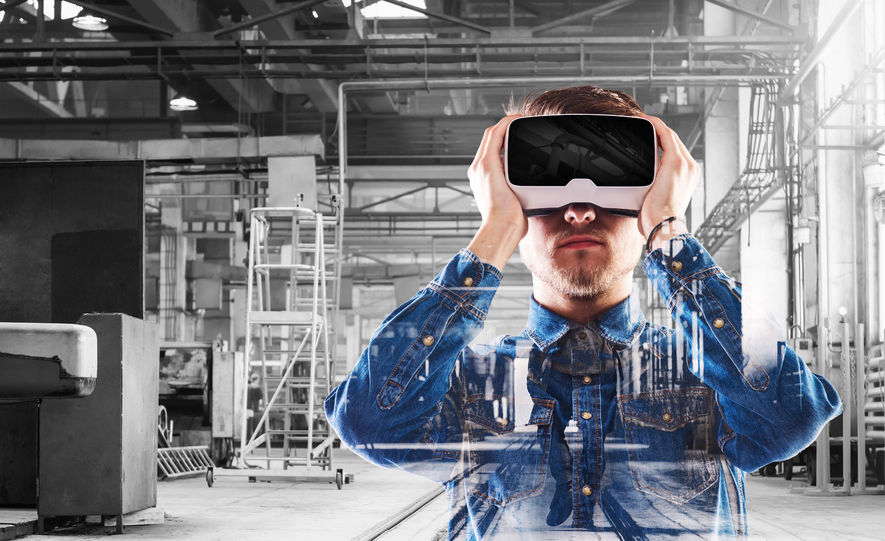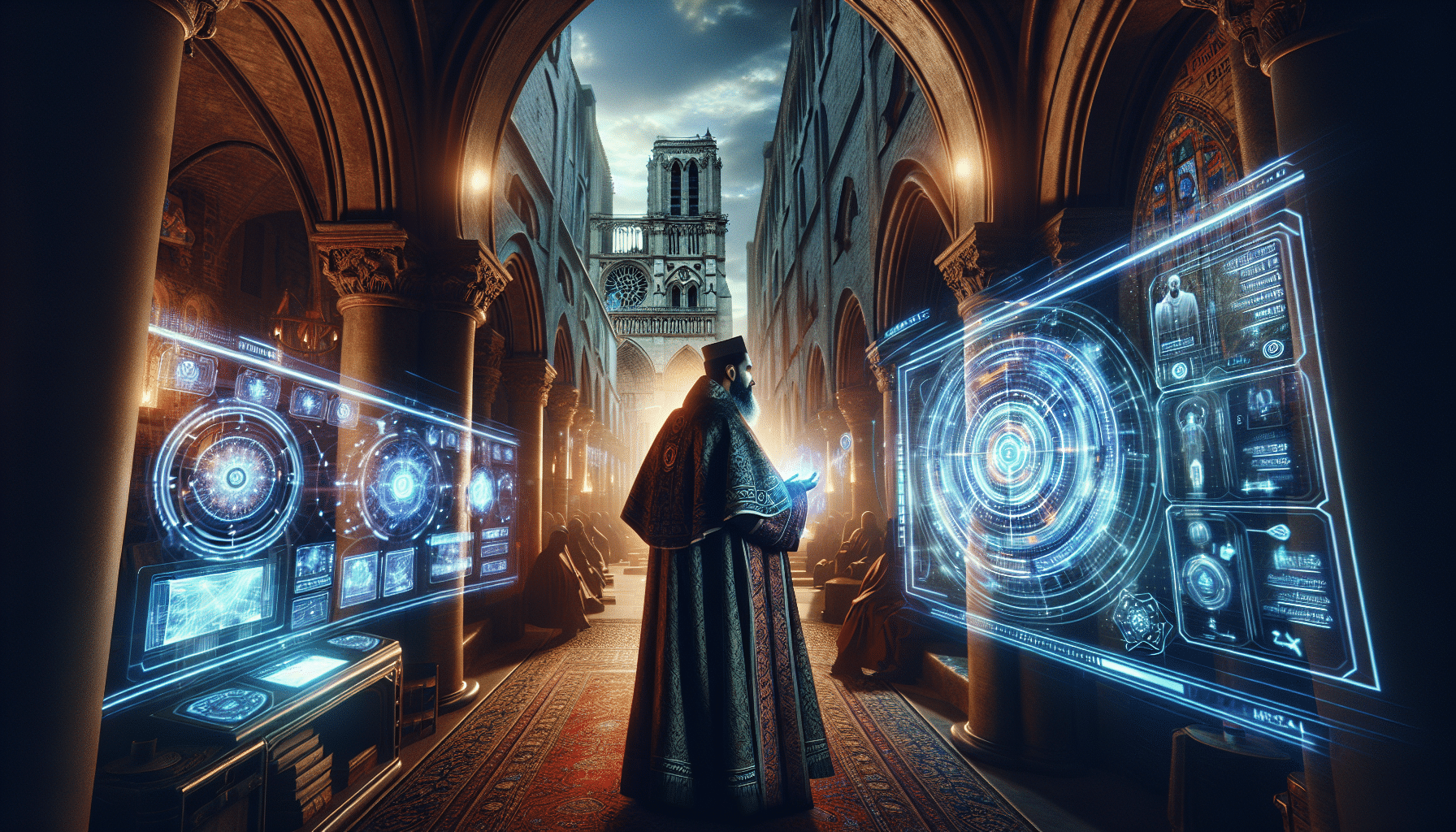Ads
In today's era of accelerated technological innovation, there has never been a more exciting time to witness the ways technology can revolutionize our future. This article will explore ten technological innovations that are poised to change the world in ways we can only begin to comprehend. From advancements in artificial intelligence to developments in biotechnology, it's a journey that promises to challenge our preconceived ideas of what is possible.
Each technological innovation discussed has the potential to change our daily lives in unexpected and fascinating ways. The goal is to delve into the details of each of these innovations, highlighting not only their technical functioning but also their potential impact on our lives, societies, and the world at large. This is a topic that demands clear vision and deep reflection.
Ads
We hope this reading not only sparks your interest but also broadens your vision of what the future may hold. It's an exciting time to be alive, where the potential of technology to transform our lives is limitless. Every day brings new possibilities and opportunities to leverage technology and make the world a better place.
1. Artificial Intelligence (AI)
Artificial Intelligence (AI) has been one of the most revolutionary technological innovations in recent years. This technology allows machines to learn from experience, adapt to new inputs, and perform human tasks. With AI, large amounts of data can be processed efficiently and accurately.
Ads
Impact of AI on the world
AI is transforming every sector of the economy, from healthcare to finance and education. In medicine, for example, AI is used to predict diseases and personalize treatments. In finance, AI facilitates fraud detection and improves the efficiency of banking operations.

2. Augmented Reality and Virtual Reality (AR/VR)
Augmented Reality (AR) and Virtual Reality (VR) technologies have advanced significantly, providing highly immersive experiences that can transform the way we interact with the digital world.
The impact of AR/VR on the world
These technologies are transforming industries such as retail, education, tourism, and entertainment. For example, in education, AR/VR can provide more interactive and engaging learning experiences. In retail, AR/VR technologies can allow customers to visualize products in their surroundings before purchasing.

3. Blockchain
Blockchain is a technology that enables secure and transparent transactions without the need for an intermediary. It's best known as the technology behind cryptocurrencies, but its potential goes far beyond that.
Impact of Blockchain on the world
Blockchain can transform the way transactions are conducted in sectors such as finance, healthcare, education, and government. For example, in healthcare, blockchain can improve the security and privacy of patient records.
4. Internet of Things (IoT)
The Internet of Things (IoT) refers to the network of physical devices connected to the internet, enabling the collection and exchange of data. This includes everything from household appliances to cars and buildings.
Impact of IoT on the world
IoT has the potential to transform industries such as manufacturing, agriculture, healthcare, and energy. For example, in agriculture, IoT can help farmers monitor soil and weather conditions in real time, which can improve productivity.
5. 5G
The fifth generation of mobile communications technology, known as 5G, promises faster data transmission speeds and greater connection capacity than previous generations.
Impact of 5G on the world
5G can transform industries such as healthcare, transportation, manufacturing, and entertainment. For example, in healthcare, 5G can enable telemedicine and remote surgery. In transportation, 5G can make autonomous vehicles a reality.
6. Big Data
Big Data refers to the vast amount of data generated by human and machine activities. Big Data analysis can reveal patterns and trends that can be useful for decision-making.
Impact of Big Data on the world
Big data is transforming industries such as healthcare, finance, education, and retail. For example, in healthcare, big data analytics can help predict epidemics, cure diseases, and improve quality of life.
7. Robotics
Robotics has developed rapidly in recent years, with robots increasingly capable of performing complex and precise tasks.
Impact of robotics on the world
Robotics is transforming industries such as manufacturing, agriculture, healthcare, and transportation. For example, in manufacturing, robots can improve production efficiency and accuracy. In agriculture, robots can perform tasks such as planting, harvesting, and irrigation.
8. Nanotechnology
Nanotechnology refers to the manipulation of matter at the nanoscale, which can enable the development of new materials and devices with a wide range of applications.
Impact of nanotechnology on the world
Nanotechnology can transform sectors such as medicine, energy, electronics, and agriculture. For example, in medicine, nanotechnology can enable targeted drug delivery and early disease detection.
9. Renewable Energy
Renewable energy sources, such as solar and wind, are becoming increasingly viable and affordable, potentially transforming the way we generate and consume energy.
Impact of renewable energies in the world
Renewable energy can help mitigate climate change by reducing our dependence on fossil fuels. It can also create jobs and promote sustainable development.
10. Biotechnology
Biotechnology is the use of living organisms or their components to develop or create different products. This technology can have applications in areas such as medicine, agriculture, and energy.
Impact of biotechnology in the world
Biotechnology can transform the way we treat diseases, produce food, and generate energy. For example, in medicine, biotechnology can enable the development of gene therapies and personalized medicines.
Conclusion
In conclusion, technological innovations such as Artificial Intelligence, Augmented and Virtual Reality, Blockchain, the Internet of Things, 5G, Big Data, Robotics, Nanotechnology, Renewable Energy, and Biotechnology are revolutionizing the future and have the potential to transform the world in unprecedented ways. These technologies are impacting every sector, from medicine to finance, education, retail, agriculture, energy, and transportation, changing the way we live, work, and interact with the world. These innovations not only promise to increase efficiency, precision, and personalization, but can also help address some of the most pressing challenges we face, such as climate change and data security. However, it is also crucial to consider the ethical, privacy, and security challenges these technologies may pose. Ultimately, the future is promising, but also uncertain, and it is up to us to navigate these changes responsibly and sustainably.



